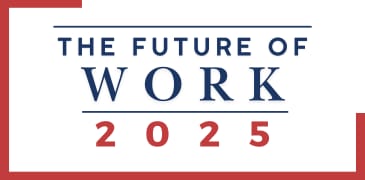- Opportunity Overdrive by Candle
- Posts
- Fewer Jobs, Fiercer Competition
Fewer Jobs, Fiercer Competition
📰 In this issue
🔹 The Illusion of robust employment numbers BLS-BS
🔹 AI, automation:The squeeze on knowledge work
🔹 Tariffs and regulatory uncertainty: Chilling industry hiring
🔹 Immigration restrictions: Shrinking the talent pool and lowering dynamism
🔹 The takeaway for knowledge workers: Heightened competition for fewer, more specialized roles.
Why It's getting harder for knowledge workers to find jobs in 2025

The illusion of robust employment numbers
Each month, the U.S. employment report grabs attention with its top-line figures, but these numbers often obscure a messier reality. The Bureau of Labor Statistics (BLS) pulls data from a tangled web of surveys, state records, and administrative sources, which can lead to revisions and discrepancies as fuller information trickles in. On top of that, the BLS applies significant yearly tweaks to smooth out these gaps, meaning the job market’s true pulse—especially for those hunting for work—can feel far removed from the initial buzz around those headline stats.
AI, automation and the squeeze on knowledge work

The reality facing American knowledge workers in 2025 is stark: roles that were once stable and highly sought after are coming under threat from AI. Tech consultancies and major companies are shedding tens of thousands of jobs as AI automates traditional functions. For example, more than 77,000 positions have been eliminated at large tech companies this year alone as AI systems replace or fundamentally alter knowledge roles.
Increasing Risk Across White-collar Roles: Estimates suggest 30% of current U.S. jobs could be automated by 2030, with half of all job tasks potentially replaced within two decades. Nearly half of companies using AI tools like ChatGPT report workforce reductions, and 14% of employees are expected to be forced into career changes due to AI by 2030.
Downward Mobility and Wage Pressure: Entry-level knowledge work and routine professional roles are especially at risk. As AI closes the door on these pathways, remaining positions may see reduced compensation or require advanced technical skills beyond what most candidates possess.
Offshoring of Knowledge Functions: American firms are increasingly expanding operations overseas, intensifying global competition for white-collar workers.
Tariffs and regulatory uncertainty are chilling industry hiring

This year, new tariffs imposed on imports from major U.S. trading partners—Canada, Mexico, EU, APAC and China—have complicated hiring and business planning. Many industries are pausing recruitment, waiting to see how the tariff situation will unfold.
Economic Drag from Tariffs: U.S. GDP growth has slowed by nearly a full percentage point due to tariffs in 2025, and the longer-term outlook is for sustained drag on economic performance.
Industry Caution: Business expansion is hamstrung by uncertainty; many companies are hesitant to add staff or invest in new projects with tariff and supply chain rules subject to sudden change. This especially affects sectors like manufacturing, technology hardware, and supply chain management, where high-skilled knowledge workers are common.
Some Job Growth in Targeted Sectors: Industries such as semiconductors and renewable energy are seeing modest hiring increases as companies onshore production, but these gains are not enough to offset broader slowdowns.
Immigration restrictions shrinking the talent pool and lowering dynamism

Immigration policy changes in the US in 2025 have further clouded the outlook for both employers and job seekers.
Lower Labor Force Participation: Both U.S.-born and foreign-born labor force participation rates have dropped compared to last year, with steeper declines among immigrants. This reduces not only the number of job seekers but also the diversity and innovation often provided by international talent.
Reduced Hiring and Economic Headwinds: Crackdowns on immigration have curtailed the flow of skilled workers, hampering industries that rely heavily on global talent, including tech, engineering, and research. Many employers report a shortage of candidates with the specialized skills needed for emerging roles, especially those created by AI adoption.
Policy Whiplash: Uncertainty around programs such as Optional Practical Training (OPT) and STEM OPT for international graduates makes U.S. employers less likely to make long-term hiring commitments.
The takeaway for knowledge workers

For professionals navigating the job market in 2025, it's a “perfect storm”: AI is automating or redefining countless roles, tariffs and trade wars are freezing business investment, and stricter immigration rules are shrinking both the talent pool and opportunities for collaboration. Economic indicators may appear healthy on the surface, but the experience on the ground—especially for ambitious knowledge workers—is increasingly one of uncertainty, compressed wages, and heightened competition for fewer, more specialized roles.
Ultimately, knowledge workers will need to focus on upskilling, adaptability, and staying informed about policy changes to remain competitive in this rapidly shifting landscape. It’s the same story, but getting more convoluted.
This is the FREE career newsletter that could
end up costing you a lot more not to subscribe to.
Opportunity Overdrive is brought to you by Candle. At Candle, we empower the modern worker and put them at the center of opportunity.
For more information about our project, visit: https://www.projectcandle.ai/
Reply